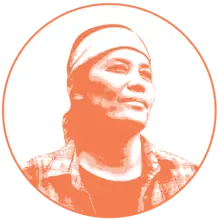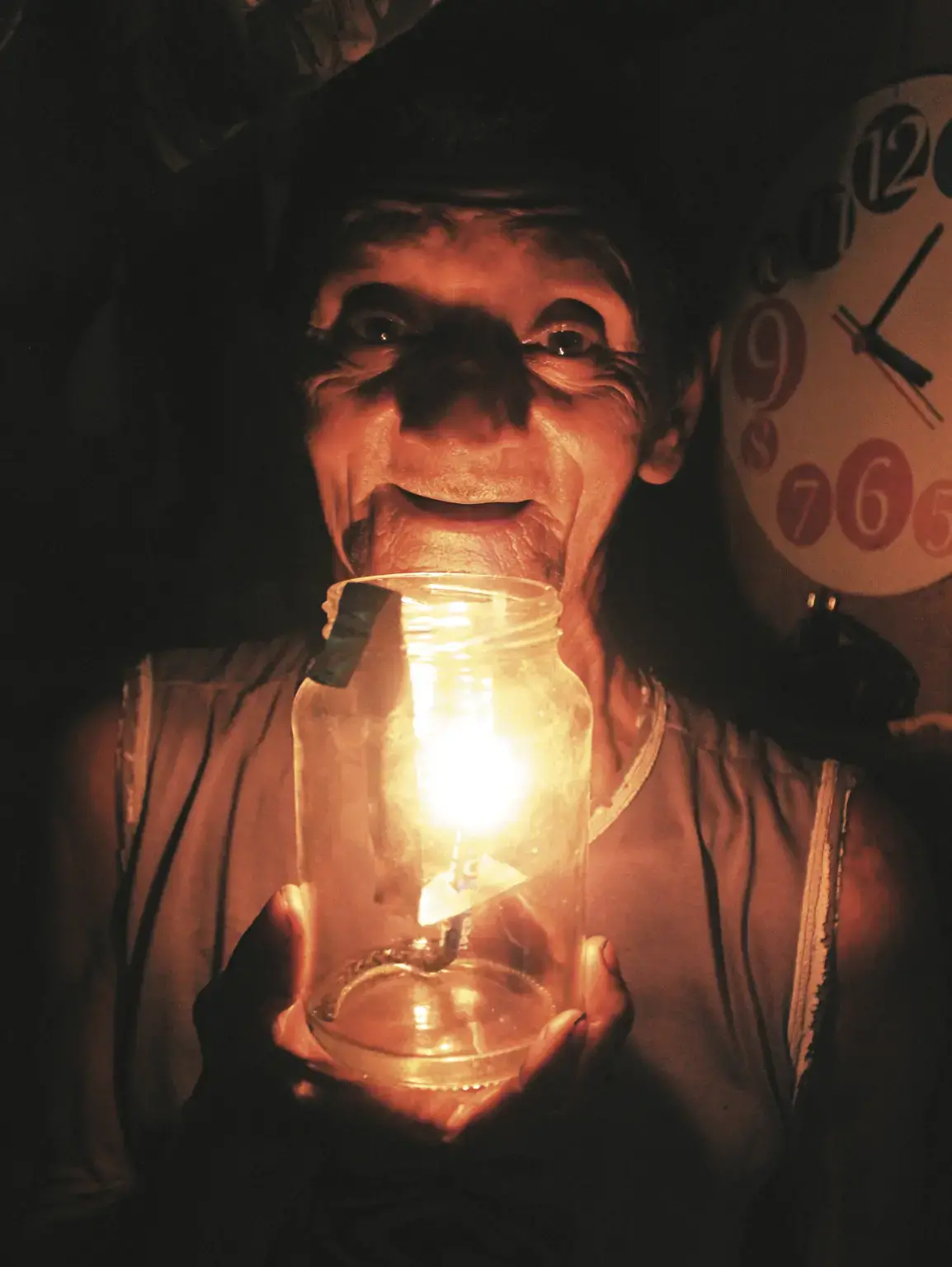TEST This story excerpt was translated from Portuguese. To read the original story in full, visit Piaui. You may also view the original story on the Rainforest Journalism Fund website here. Our website is available in English, Spanish, bahasa Indonesia, French, and Portuguese.
Pará is where most energy is produced in the country and where most people live in darkness
When Raimundo Pinheiro realized that the luscious light was beginning to color the sky, he suddenly got up from the kitchen floor, where he had been sitting talking to his wife. It was around six in the afternoon in São Miguel dos Macacos, a district in the municipality of Breves, on Marajó Island in Pará. It was time to make a lamp. "Nowadays everything is expensive. Do you know how much a lamp costs in the market? Ten reais! And it still breaks very easily," he comments.
Pinheiro sawed two strips of an aluminum can (which once was used to package oil), took a glass jar (which once served to preserve palm hearts), a piece of fabric (which was part of a hammock) and assembled the lamp in about half an hour. He then picked up the match and lit the end of the fabric thread soaked in kerosene with his long, thin fingers. The flame illuminated the living room of the 78-year-old pensioner, known in São Miguel dos Macacos as Seu Socó, "the one who invents things."
"Before, we used to make them out of wood or straw, but they caught fire easily and the support was not so hard. Aluminum is more resistant," says Pinheiro. "Here there is no garbage collection. If an object no longer has a function, we have to find another one. The craft of making a lamp is passed down from generation to generation in the district. His wife, the midwife Ana Melo da Silva, 69 years old, says: "Every river dweller makes lamps. We teach the children, and when it's about six o'clock in the afternoon, everybody starts making them. The custom is to make them in the late afternoon because during the day there are fields and fishing grounds to work on."
As a nonprofit journalism organization, we depend on your support to fund journalism covering underreported issues around the world. Donate any amount today to become a Pulitzer Center Champion and receive exclusive benefits!

There is no electric light in the houses of São Miguel dos Macacos. There is no public electricity either, which is why you can't see any lampposts in the district. The 47 families in the village that are supported by Equatorial Energia, Pará's energy distributor, depend on diesel generators to light their homes. But this doesn't mean that they have light on a daily basis. Diesel is a financial burden for the people. The price of a liter of diesel varied between 7 and 8 reais, according to the balance sheet of the National Agency of Petroleum, Natural Gas and Biofuels (ANP) released last January. In addition, in order to obtain the fuel, people from the district need to travel to the municipality of Breves, which is more than two hours away by boat, or to the capital city of Belem, 12 hours away by boat.







